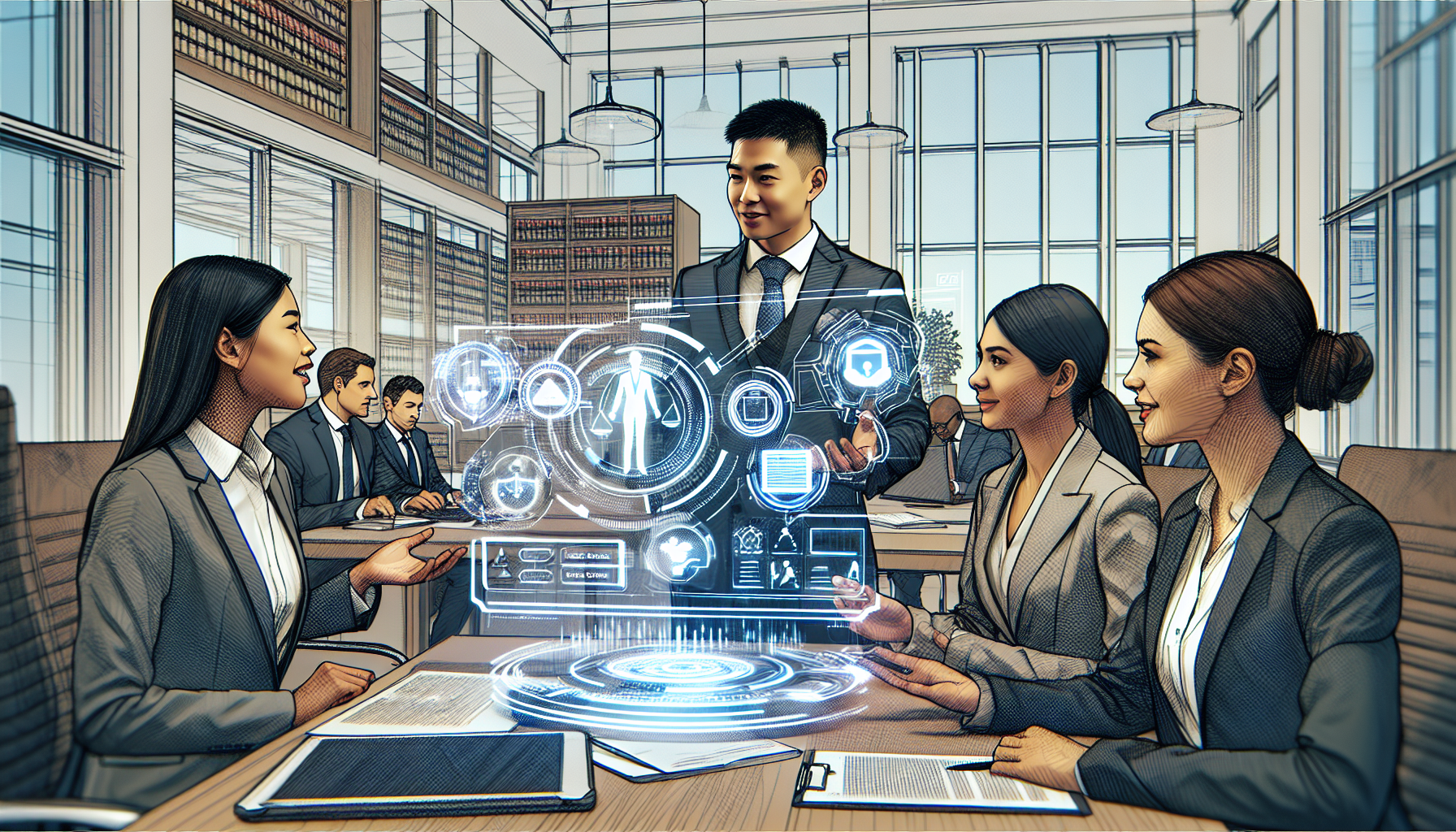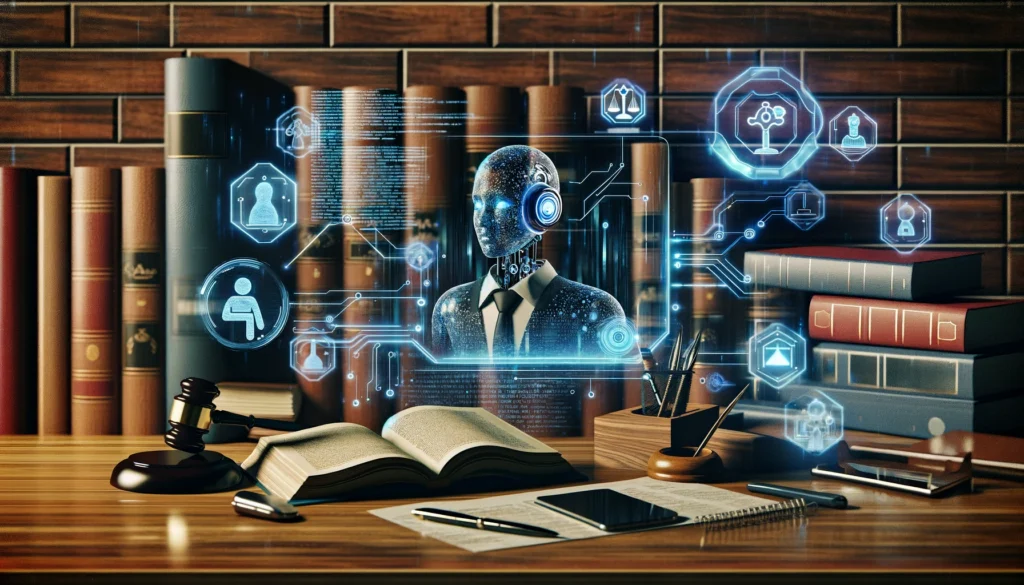
Unlocking Efficiency: Introductory Remarks on AI in Estate Law
Paralegals continuously grapple with the intricate complexities of contested wills and estates. From sorting through voluminous documents to ensuring the accuracy of each legal proceeding, the burden can be heavy. Overlaying these challenges is the necessity to meet stringent deadlines while maintaining meticulous attention to detail.
However, the advent of advanced AI models like ChatGPT offers a new realm of possibilities. Leveraging AI tools to streamline and optimize workflow represents a transformative step in modern legal practice. With the ability to handle tasks such as document review, drafting correspondence, and conducting legal research, AI augments a paralegal’s efficiency and effectiveness.
Early Case Analysis: Pinpoint Issues and Gather Information Swiftly
A crucial initial step in managing contested wills and estates involves a thorough case analysis. This often starts with identifying key issues and gathering relevant information quickly. By crafting specific prompts for ChatGPT, paralegals can gain a preliminary understanding of the case at hand.
For example:
- “Summarize the main issues related to this contested will scenario.”
- “List potential areas of concern for an estate contested under these circumstances.”
Using these prompts, ChatGPT can swiftly outline issues and checklist items, assisting in the early identification of potential roadblocks, and enabling a more strategic approach to case management.
Also read:
Document Review Redefined: Speeding Up Analysis with AI
Traditional document review can be a time-consuming endeavor, especially when dealing with extensive estate documents. Here, ChatGPT can serve as an adept assistant. Crafting precise prompts enables the AI to summarize and interpret complex legal documents.
Consider using prompts such as:
- “Highlight the key clauses in this will that could be contentious.”
- “Summarize the critical points of this estate’s asset distribution document.”
These methods allow paralegals to rapidly pinpoint significant sections, thus saving valuable time and effort during the review process.
Also read:
Drafting Legal Memos and Correspondence: Making the Most of Automated Assistance
Drafting legal memos, letters, and emails is an indispensable yet often tedious task. With ChatGPT, paralegals can harness AI to generate initial drafts, which can then be refined to meet specific legal standards.
Utilize prompts such as:
- “Draft a memo summarizing the current status of the estate case.”
- “Compose a formal letter addressing the client’s concerns regarding the will contestation.”
While AI-generated drafts provide a substantial foundation, it remains critical to review and adapt these drafts to ensure they meet legal norms and accuracy standards appropriate for each particular case.
Also read:
Research and Precedent Search: Tailored Techniques for Superior Results
Legal research and precedent searches are paramount in formulating solid legal arguments. ChatGPT can assist by querying for pertinent case law and statutes, providing a robust starting point for in-depth legal research.
Effective prompts include:
- “Identify relevant case law pertaining to this exact scenario of a contested will.”
- “Search for statutes related to the probate process in this jurisdiction.”
To ensure reliability, cross-reference AI-sourced information with trusted legal databases, underlining the importance of accuracy and thorough verification in all research endeavors.
Also read:
Client Communication: Enhancing Interactions with AI Suggestions
Client communication is vital in handling contested wills and estates, where empathy and clarity are paramount. ChatGPT can help draft communication templates and scripts, ensuring that clients receive comprehensive and clear updates.
Effective prompts might be:
- “Generate a template for updating clients about the progress in their contested estate case.”
- “Draft a response to a client’s query about the status of their will contestation.”
Maintaining client confidentiality and trust is vital, so ensure that any AI-generated content is carefully vetted and customized before use.
Also read:
Practical Scenario Workshops: Practice-Prompting for Real-World Application
To effectively implement AI in practice, constant learning and scenario-based exercises are invaluable. Creating nuanced and creative prompts can help in honing these skills.
Suggested prompts include:
- “Create a detailed scenario of a contested will involving multiple beneficiaries with conflicting interests.”
- “Develop a practice case where the validity of the executor’s actions is questioned.”
These exercises encourage the continuous adaptation of AI tools, ensuring that paralegals remain adept at applying them in real-world contexts.
Also read:
Managing Workflows and Deadlines: AI as an Organizational Tool
Efficient workflow and deadline management are integral to legal practice. ChatGPT can generate workflow checklists and reminders that integrate seamlessly with existing tools.
Prompts such as:
- “Create a workflow checklist for managing a contested will case from initial consultation to court proceedings.”
- “Remind me of key deadlines for this estate case.”
These functionalities help paralegals stay organized, ensuring that no crucial deadlines are missed.
Also read:
Ethical Considerations: Navigating the Responsible Use of AI
While AI can significantly streamline legal tasks, its use necessitates stringent ethical considerations. Ensuring compliance with legal standards and norms is paramount.
Guidelines may include:
- “Always verify AI-generated content for accuracy and relevance.”
- “Maintain confidentiality and avoid sharing sensitive client information with AI tools.”
These practices help navigate the ethical landscape, ensuring the responsible and effective use of AI in legal practice.
Concluding Thoughts: The Future of Paralegal Work with AI
Incorporating ChatGPT into daily paralegal tasks offers a blend of efficiency and enhanced quality of work. The benefits of integrating AI into legal practice are profound, facilitating advancements in how paralegals manage contested wills and estates.
As the legal industry evolves, continuous exploration and adoption of AI tools will pave the way for professional growth and unprecedented efficiency. It is an exciting era for legal practitioners, with AI as a pivotal ally.


